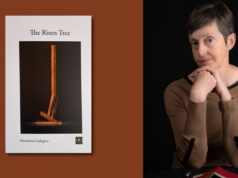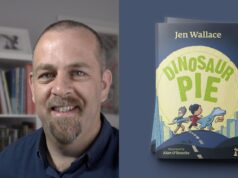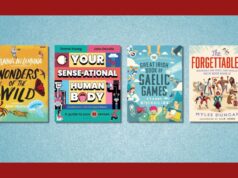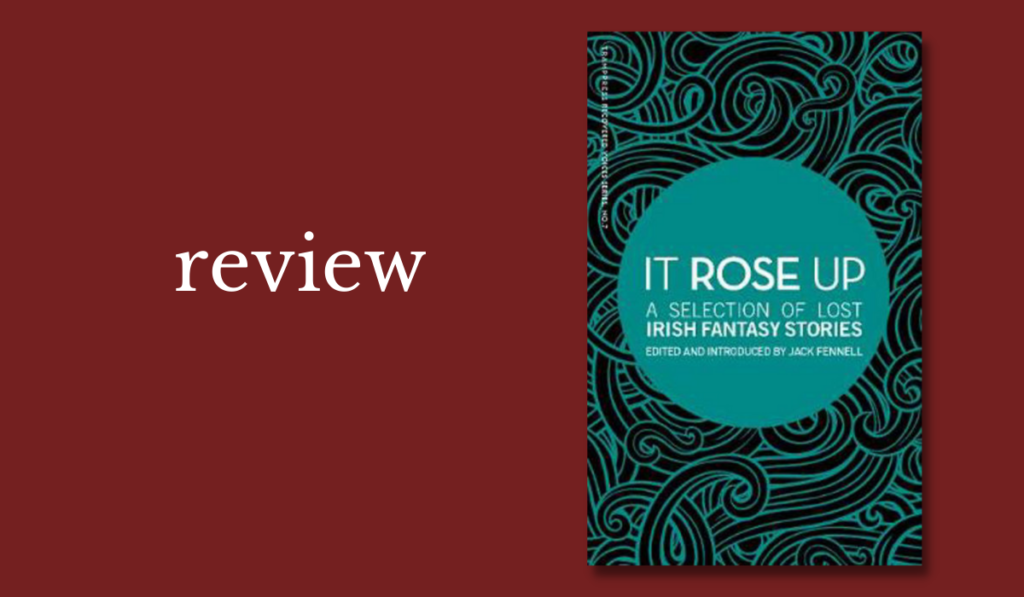
It Rose Up: A Selection of Lost Irish Fantasy Stories|Ed. Jack Fennell|Tramp Press| ISBN: 9781916291409|€15.00
“Immerse yourself—with Fennell’s guidance—in stories of the mysteries of the Ogham language, the power of ancient chants and incantations, alongside theories on multiple dimensions, dragon slayers and talking dogs.”
—Fiona Murphy on It Rose Up, ed. Jack Fennell (Tramp Press)
by Fiona Murphy
‘Escapism is more nuanced than a simple denial of reality,’ Jack Fennell tells us in the introduction to It Rose Up—then proceeds to prove it in the next 255 pages, 16 short stories and 12 writers.
This collection of fantasy is akin to the stories heard at the end of the night when everyone gathers around to hear them fall from the lips of an uncle, whose friend’s grandmother’s cousin swears it definitely happened.
He knows he has a captive audience when familiar characters like the pooka and superstitions like the unlucky whitethorn tree appear to play and cause mischief.
Storytelling experience
A true storytelling experience, these tales flow like the oral tradition, but as you rouse yourself from the fantasy lands, you find them instead wrapped up in a beautiful and originally presented book.
Part lecture series, part short story collection, Tramp Press once again backs authors defying and subverting form with this academic but accessible read.
Fennell takes us through the written and translated history of the Irish fantasy tradition – which isn’t to be confused with the myths and legends of the isle (though some of their characters and icons do appear).
Each story is prefaced with a very brief note from the editor, as he takes this journey with you, telling us what to bear in mind as we read, giving us the historical or political or social context of the time — but he then leaves it up to the reader to interpret the story how they will.
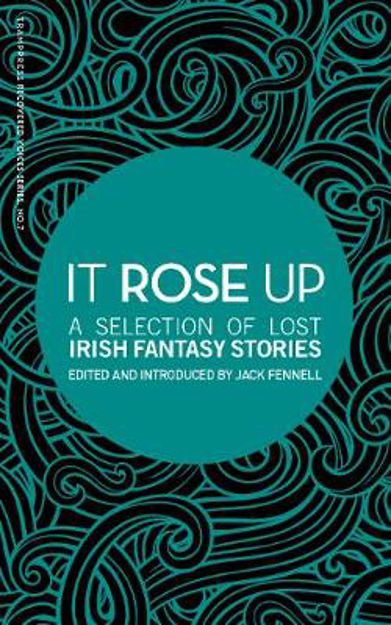
Fantasy
I kept waiting for the post-mortem of the tale, what a symbol meant, or whether there was a dig at an occupying power or a local character lost to time. But I quickly realised no further explanation or interpretation was forthcoming – just as there wouldn’t have been for the original audiences of these tales.
Fantasy is anything but escapism, at times. It’s a commentary on its era, and although I might not be able to contextualise every tongue-in-cheek, sly comment, their contemporary audiences certainly could.
What’s most fascinating is to see the evolution of not only the topics, but the forms of fantasy writing, from 1752 right up to 1938.
A ‘newspaper’ reports on the arrest of a ghoul at a local cemetery turning a dark topic absurdly hilarious. There is a blend of the old and new with an RTÉ style commentary on Queen Meadhbh refereeing a camogie match between the Sidhe, broadcasting and spellcasting mixing in a bizarre and genius moment from the 1930s.
Powerful essence
The different fascinations and problems of history make themselves known through the worldbuilding of the time; they appear and disappear, just as quickly as humanity catches up, from electricity to the atom, the exotic orient, the fear of the crushed patriarchal empire and the Celtic revival.
Much like the myths they are often confused for, fantasy stories attempt to comment on and make sense of the world around them, the issues of the day – morality and mortality all wrapped up in magical realism.
While this collection manages to show the range that Irish fantasy writing spans, it simultaneously captures the purely powerful and uniquely Irish essence that binds them together: the role of the landscape as a living, breathing background; the haunted past and preoccupation with our identity—both as an occupied country and even as a newborn republic trying to make sense of ourselves.
Double-voiced
The same tricky flowing language, the dialogue said out of the corner of a mouth, said with a sly grin, with a tongue in the cheek – the oral tradition that inspired many of these stories remains in the double entendre that coats our voices even now. The way we say things without really saying them, in a language of the once oppressed.
Comedically tragic and tragically comedic, these stories convey as much with what goes unsaid as they do when they are explicit.
A rare collection
Immerse yourself – with Fennell’s guidance – in stories of the mysteries of the ogham language, the power of ancient chants and incantations, alongside theories on multiple dimensions, dragon slayers and talking dogs.
A rare collection where you don’t know what will appear next, Fennell’s work is a cerebral and entertaining read that will be an original and valuable academic source in years to come.









